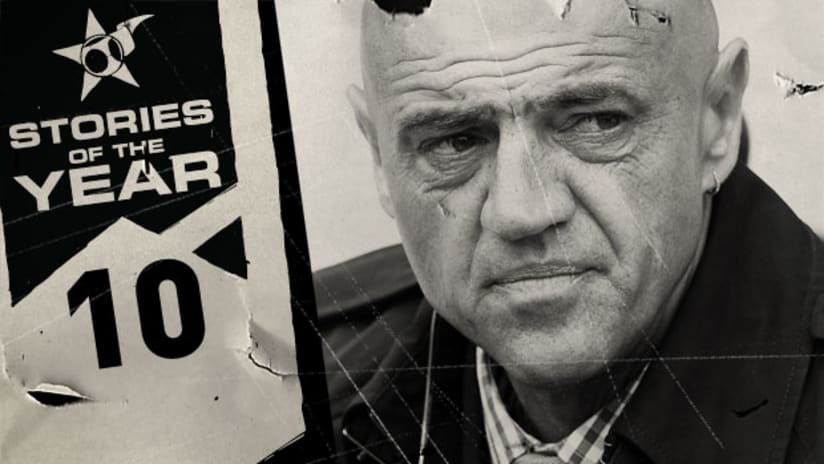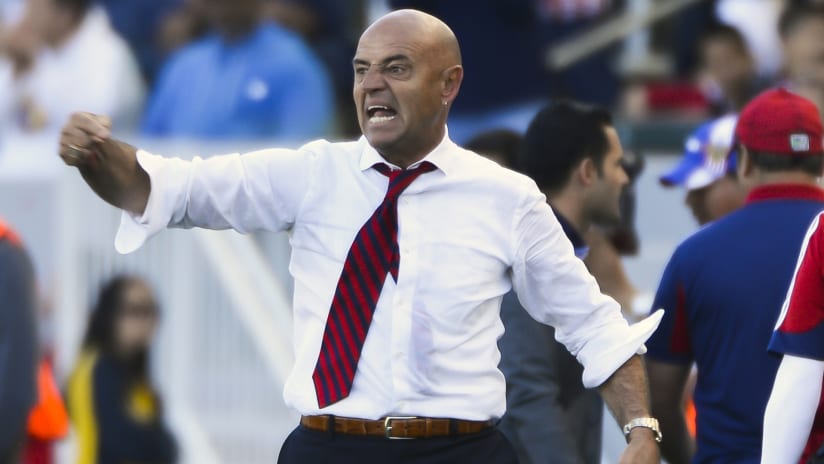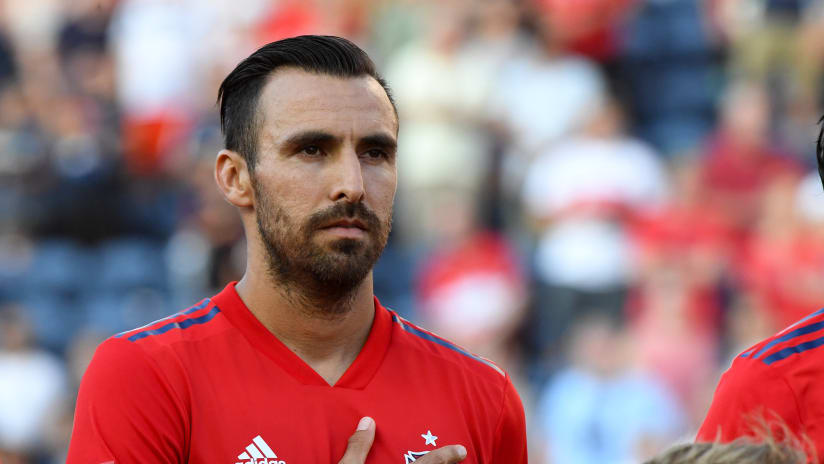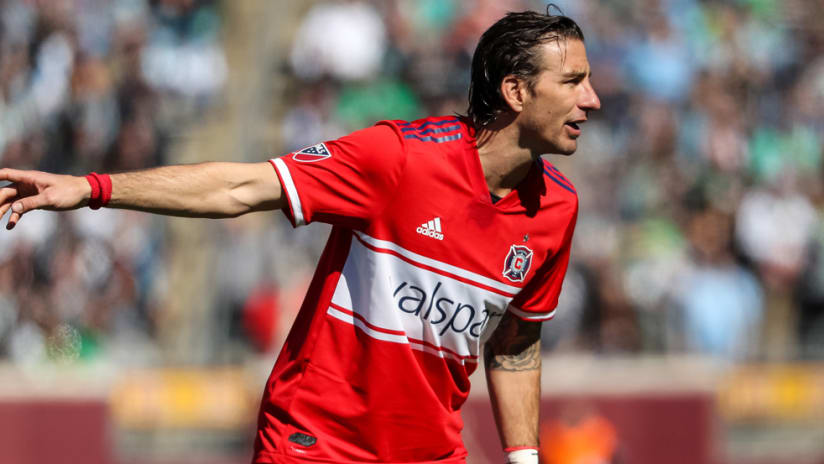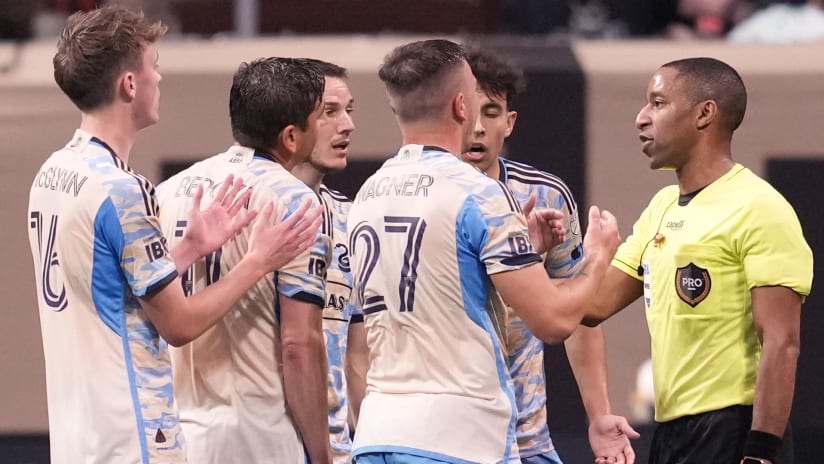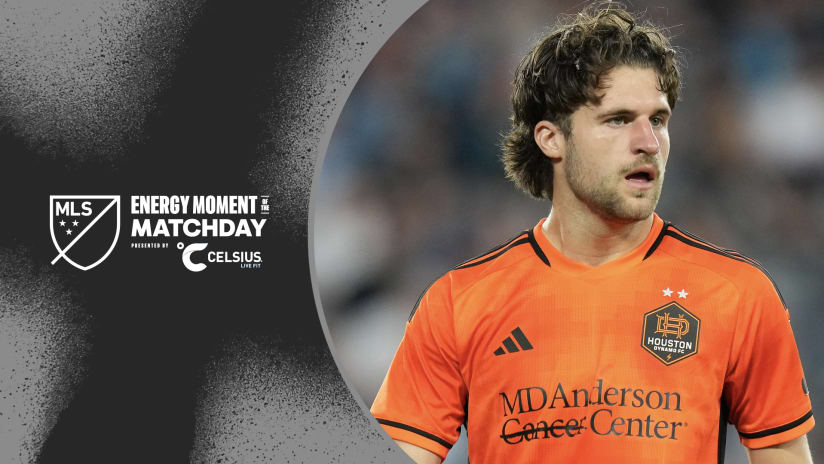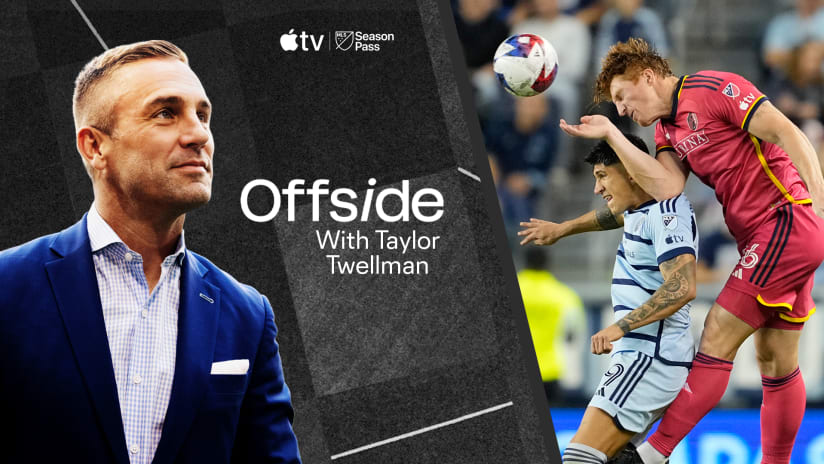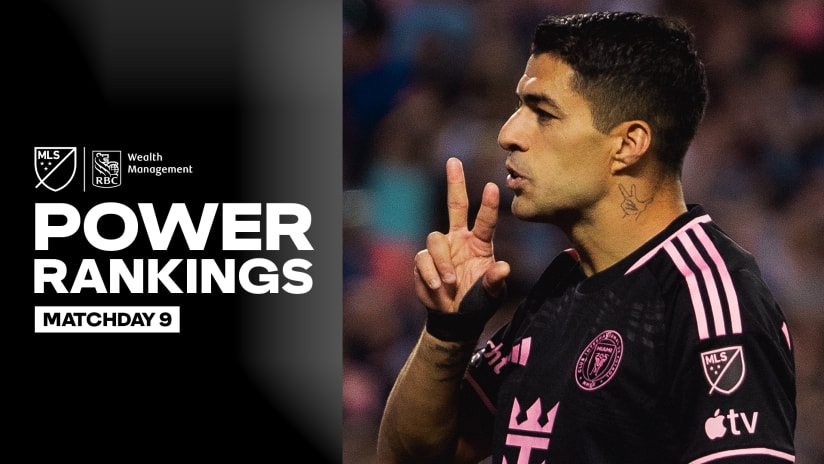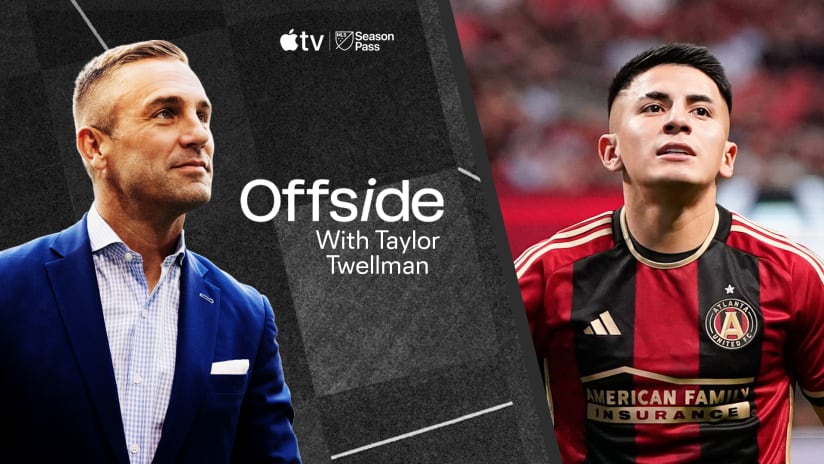As the Best of 2013 continues on MLSsoccer.com, we're counting down the 10 most important stories of the year in Major League Soccer. On Dec. 30 we'll reveal the Story of the Year, as voted by our panel of 20 editors, writers, videographers and statistics specialists.
Contributor Alicia Rodriguez ushers us into the top 10 with a look at a fascinating and frustrating season for Chivas USA. Under a mandate to return to the team's Mexican roots, the club controversially jettisoned a number of established players who didn't fit the new makeover before the preseason, and watched their charismatic coach utter some of the most memorable quotes in recent league history. What's next for a club stuck looking for an identity that works?
It’s fair to say one of the biggest storylines for the 2013 season in Major League Soccer actually took shape back in August 2012, when Mexican businessman Jorge Vergara and his wife Angelica Fuentes took over sole ownership of one of the league’s most maddening franchises.
Vowing a return to Chivas USA’s Mexican roots – first attempted back when the club debuted in MLS in 2005, with ultimately negative results – Vergara and Fuentes promptly stocked the team’s management and coaching ranks with people from Mexico, marking the dawn of a controversial experiment to see if getting back to Chivas basics would actually work.
Did it? Not for a second. But it was all so fascinating to watch.
First things first, the team shipped out Nick LaBrocca, James Riley, Shalrie Joseph, Ben Zemanski and Casey Townsend during the preseason, apparently under a mandate to play a style of soccer that more resembled what was played in Liga MX. But accomplishing a so-called “Latin style” proved difficult – if not impossible - and many observers cried foul and accused Chivas of being racist in their player personnel moves.
- STORIES OF THE YEAR: Which topics missed out top 10?
Their head coach didn’t steer the spotlight away either. The new man in charge was outspoken former Puebla manager Jose Luis Sanchez Sola – “Cheíls” was perhaps the buzzword of the first part of the year in MLS – and he was endlessly entertaining. Among the rather-unique topics Cheíls discussed during the season were the differences between the treatment of injuries in Mexico and the United States, the low quality of his squad, and his initial impression of Utah as a place to send misbehaving children.
Despite a surprisingly solid start to the season, the inexperience in the squad became evident as the weeks wore on. A trade in May that sent one-time US national team striker Juan Agudelo (right) to New England didn’t help the team’s prospects, and even before summer officially started the club was done staking its future to Cheíls. He was fired on May 29, with Chivas stuck firmly in what eventually became a 14-game winless streak.
Chelís himself predicted he wouldn’t stay in MLS long, saying on the eve of the season, “I don’t see myself living here two years.” He never even came close.
Another veteran coach from Mexico, Jose Luis Real, took over the reins of the team, leading to a bump in the team’s fortunes for about two months, before the team ended the season yet again on a down note, with five consecutive losses by a combined 18-2 margin. They limped to a last place finish in the Western Conference, and were essentially out of the playoff hunt by June.
All the while, there were other issues. The team struggled to attract spectators to games and finished last in the league in attendance, there was no local television deal in place for the first 25 games of the season and they were subject of an unflattering portrayal on HBO’s “Real Sports” program in July.
MLS Commissioner Don Garber was asked about Chivas’ struggles more than once during the season, and urged patience back in March.
“If we’re here in June or July and we’re having the same issues that we’re talking about right now, this might be a different conversation,” Garber said at the time.
- BEST OF 2013: Find out who voted for this year's awards
When asked about the team’s problems again in December, Garber asserted a plan was being worked out to try and fix the situation. Obviously, for MLS to really join the elite leagues of the world in the coming years, all of the teams need to have stability and positive momentum on and off the field. And Chivas simply have struggled to keep pace.
But beyond any issues about team philosophy, perhaps the worst issue that has dogged Chivas USA over the course of the team’s history is instability. The underlying approach has switched from Mexico-first to MLS-first time and again, with varying results. But in a league rife with parity, Chivas haven’t made the playoffs since 2009, the second-longest drought in MLS.
Moving into 2014, there are mixed signals concerning the next rebuild of Chivas. In a bid to bring in experience and fill major needs, they recently traded for Mauro Rosales and Andrew Jean-Baptiste. But the team is looking for a coach again, as Real was appointed coach of Chivas de Guadalajara after the close of the season. The wheel keeps turning.
Additionally, one has to wonder if the owners will finally invest seriously in the team, as Chivas’ payroll in 2013 was by far the lowest in the league. Though history shows that teams in MLS do not have to spend the most in order to win trophies, teams cannot lag far behind the rest of the pack and expect to contend. Given the concerns over Chivas de Guadalajara, who are approaching a relegation battle in Mexico, will divided attentions from the owners leave Chivas USA out in the cold once again?
The powers that be at Chivas USA claimed 2013 would be the start of a new era, and they certainly got that part right.
But after one of the most frustrating and fascinating seasons for any Major League Soccer franchise in recent memory, the question remains: Where exactly is the team headed now?

